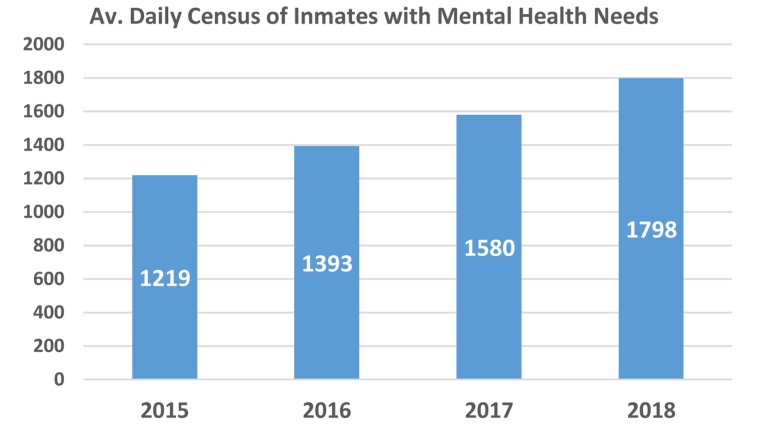The Orange County Sheriff’s Department will stop leasing jail space for ICE detainees, as part of major changes to address the increasing demands for inmates needing mental health services, Sheriff Don Barnes said in a news release Wednesday.
“These decisions are intended to mitigate the risk of litigation from the state while, at the same, minimize costs to Orange County taxpayers,” Barnes said.
The Sheriff’s Department has leased bed space to U.S. Immigration and Customs Enforcement since 2010. The current contract is set to expire in July 2020, but allows for early termination. Once terminated, ICE will have 120 days to transfer the detainees to other facilities.
Barnes said those individuals will most likely end up at detainment centers outside California, possibly separating them from their families.
I am announcing major changes to @OCSheriff's jail operations to efficiently use department resources and address the increasing need for inmates requiring mental health services. See video for more information on upcoming changes. pic.twitter.com/zrimngUkn4
— OC Sheriff Don Barnes (@OCSheriffBarnes) March 27, 2019
“We are profoundly concerned about the fate of the immigration detainees in OCSD’s custody, and what the future holds for them,” said ACLU attorney Sameer Ahmed in a written statement.
“OCSD is wrong to suggest that all individuals must be transferred to other facilities. We demand that ICE release as many individuals as possible to ensure they remain close to their families, friends, communities, and attorneys,” Ahmed wrote. “Access to counsel is a fundamental right, and transfers of detained individuals who are in the middle of legal proceedings far away from their lawyers undermine this right. We are committed to ensuring that these individuals have access to legal support and that their due process rights are protected.”
Barnes said the sheriff’s department has seen a 40 percent increase in mental health cases in its jails since 2015.

“The number of mental health cases now reach almost 1,800 on any given day. Consequently, we must focus on enhancing our mental health services and expanding the number of beds available for individuals with mental health needs,” Barnes said.
Along with ending its agreement with ICE, the Sheriff’s Department will also upgrade housing facilities to better handle inmates with mental health issues, including adding about 500 behavioral health beds to improve care, and safety of both inmates and staff.
Barnes also announced the temporary closure of the James A. Musick Facility amid the construction of two new state-funded housing facilities. The estimated completion date is fall of 2022.
“We agree with Sheriff Don Barnes’ assessment that jails have regrettably become de-facto mental health facilities and support his decision to suspend operations at the James A. Musick Facility,”
The ACLU supports the temporary closure of the Musick Facility, according to Daisy Ramirez, ACLU SoCal’s jails project coordinator in Orange County. But the legal advocacy group said the Sheriff’s Department should do more, including prioritizing diversion programs over detention.
“Locking up people with such conditions is counterproductive to their physical health and mental wellbeing,” Ramirez said. “It is ineffective, costly, and harmful. If our shared goal is reducing recidivism, then we must permanently shut down the Musick facility and allocate savings to community-based programs.”
Orange County has been something of an “outlier” within California as the state has become increasingly supportive of immigrants, the Los Angeles Times reported. It was one of the few remaining counties to work with ICE.
Former Orange County Sheriff Sandra Hutchens vehemently opposed the state’s “sanctuary” law when it passed in 2017.






















